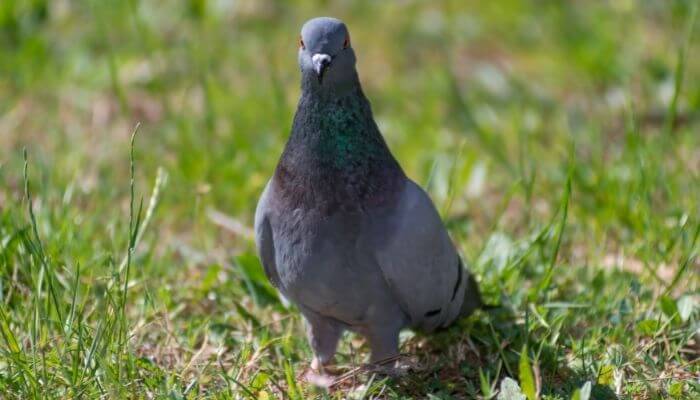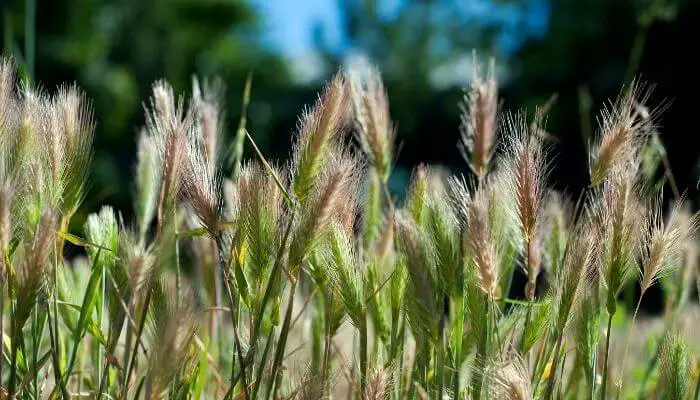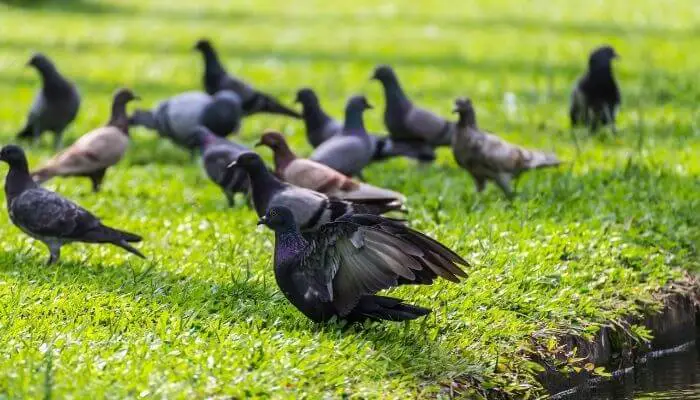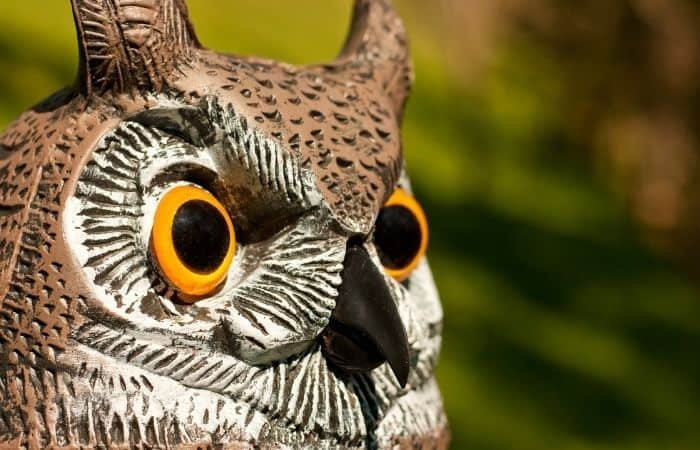Despite a reputation for eating practically anything, pigeons do not eat grass.
And with good reason, it’s not especially nutritious and it’s tough to chew…particularly when you have no teeth!
Why Can’t Pigeons Eat Grass?
Grass is quite a tough, fibrous plant that needs to be chewed – this is why you see grass eaters like cows, sheep and goats constantly chewing.
And the very simple reason for pigeons not eating grass is that pigeons have no teeth.
They are unable to reproduce that grinding motion of molars that breaks down grass.

The pigeon swallows its food whole which is stored at the base of the throat. It then passes through the digestive system where it is broken down to obtain nourishment.
This happens in a muscular part of the stomach known as the gizzard where food is ground down by grit.
The energy expended in the action of grit acting as grindstones is insufficiently productive to make it worth the nutritional benefit for pigeons to eat grass even if they were predisposed to do so.
Grass vs Grass Seeds
So they may not eat grass, but pigeons will certainly eat grass seed.
All birds will eat seeds and they are a vital part of the diet being full of minerals, vitamins and key nutrients.
This applies to grass seeds which also have the benefit of being small and easy to swallow.
Whatever type of beak your pigeon has, it will easily pick up and enjoy a tasty grass seed.
Just some of the nutrients contained in grass seed include riboflavin (B7), biotin, niacin (B3) and pantothenic acid (B5). The B group of vitamins for pigeons are very important.
Grass also contains healthy fat and digestible starch (carbohydrate).

Grass seed is not a common component of birdseed mix you can buy to feed your pigeons because although tasty, there are more highly nutritious seeds like sunflower seeds, red millet, maize, red dari and milo. Despite this, some bird seed food might actually germinate and sprout grass.
It is not grass in the strictest sense.
It will typically be millet or milo, both of which look like grass.
Millet is green and shiny while milo is actually a sorghum (this is a cereal grain which is part of the grass family).
If Pigeons Don’t Eat Grass, Why Do They Peck at Lawns?
All birds peck at grass and this is because some of them eat it and some of them are breaking stalks off to build their nests.
We know this does not follow for pigeons so why do they do it? Is it copycat behaviour?
What pigeons are doing is looking for grubs and larvae.

It is unlikely that your domesticated pigeons will do this as they get enough food from you as their owner.
They will still do it occasionally because it is genetically inherent behavior that hasn’t been completely bred out of them, but it is more likely to be feral pigeons that have made the holes in your lawn.
The problem can grow to be large areas where the grass has been torn up where pigeons have scratched the surface down to bare soil to find the grubs and larvae or in some cases just to eat clay.
How to Stop Pigeons Eating Your Grass Seed
If you are trying to grow a lawn or are reseeding to improve existing lawn, you are not going to look too kindly at birds visiting to eat your grass seeds.
Pigeons are quite persistent characters and given that it can take 4-5 weeks for grass seeds to germinate (at which point they become less attractive as bird food), you will need to take measures to protect your newly sown lawn from being eaten.

These methods apply equally to other birds as well as pigeons.
Methods include using a repellent cover, fake birds of prey (hawks or owls), a feeding station as a decoy area, a mulch layer, noisemakers or scarers, and planting extra seed.
It’s a toss up between having a beautifully-kept lawn or enjoying the sight of pigeons and other birds in your garden.
